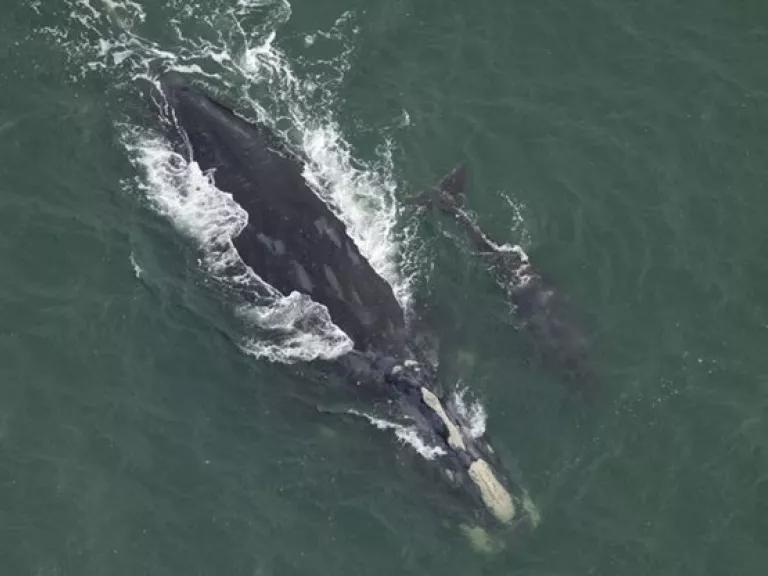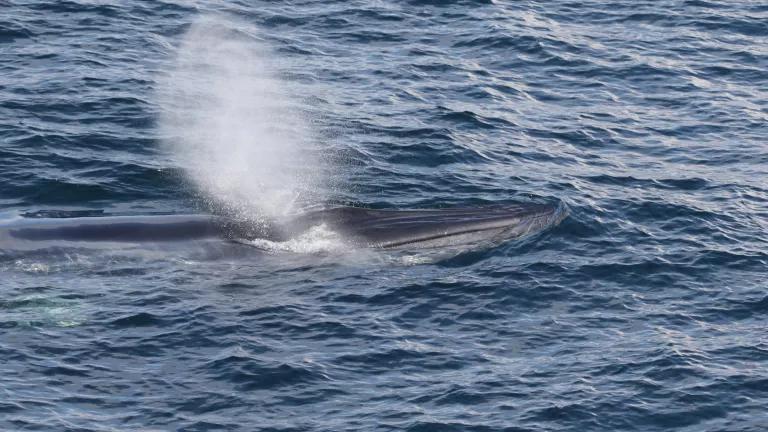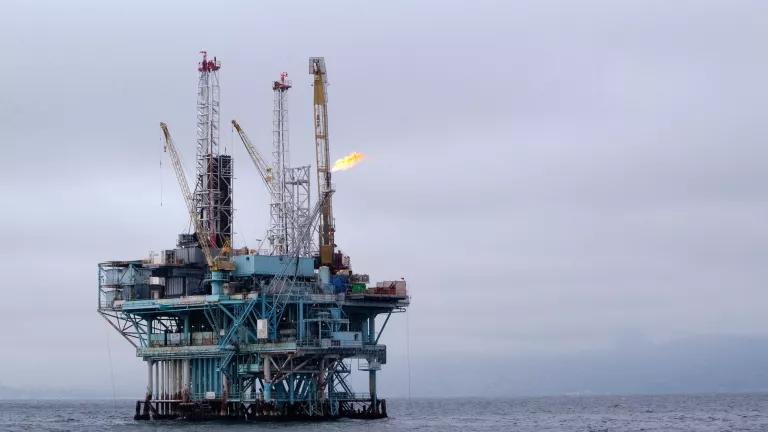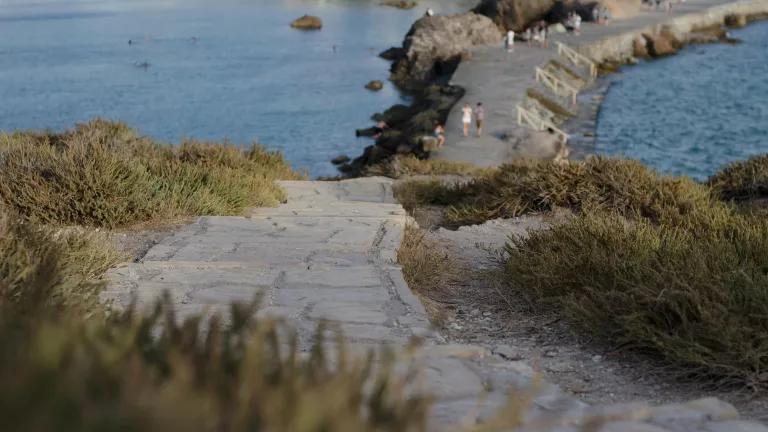Vessel Strike Fatally Wounds Right Whale Calf
One of only nine endangered North Atlantic right whales calves born this season has been found with serious injuries caused by a vessel’s propeller.

Injured North Atlantic right whale 2024 calf of Juno (#1612) seen with injuries on the head, mouth, and left lip consistent with vessel strike.
Credit: Forever Hooked Charters of South Carolina.
We are only days into the new year and are already faced with tragic news – a weeks-old North Atlantic right whale calf has been struck and fatally injured by a vessel. Again.
Mother “Juno” and her newborn calf were the cause of much excitement when they were spotted off Georgetown, South Carolina, last November, as they were the first mother-calf pair sighted during the calving season. Scientists noted that it was a hopeful sign for the species that a calf was born so early in the calving season, reminding us that they are the “future of the population.”
But that optimism ended on January 3rd, when members of the public found the young calf off Edisto, South Carolina, with several deep propeller wounds on its head, mouth, and left lip consistent with a vessel strike. These injuries may impact the calf’s ability to nurse successfully. After reviewing the case, NOAA Fisheries biologists made a preliminary determination that the wounds meet the criteria of “serious injury,” meaning the calf is likely to die as a result.
No mother should be faced with the horror of having their child be suddenly hit out of the blue by a fast moving boat. It is currently unknown if Juno is also injured.
At least 38-years old, Juno is an experienced mother, and this was her eighth documented calf. Juno and her calf were last seen prior to the injury on December 9th off Amelia Island, Florida, where Juno will have been nursing and teaching her days-old calf how to swim close to the water’s surface. The pair were getting ready to make the calf’s first northward journey to summer feeding areas in the northeast United States and Canada when the strike happened.

North Atlantic right whale Juno and newborn calf.
Credit: Clearwater Marine Aquarium Research Institute, taken under NOAA permit #26919. Aerial survey funded by United States Army Corps of Engineers.
Perhaps the most tragic part of this incident is that it could have been entirely avoided. NOAA Fisheries is in the process of finalizing an amended vessel speed rule, which would likely have required vessels of the size that may have hit the calf to slow down to a speed that is safer for whales. The final rule was originally supposed to be issued last year, which would have helped protect Juno’s calf. But the agency announced in November that it would be delayed until some undetermined time in the new year.
Calls from environmental groups for the agency to issue emergency regulations to protect right whale mothers and their calves also went unheard by NOAA, despite several deadly strikes in recent years.
Any delay to protect the species is unconscionable. Only about 350 North Atlantic right whales remain alive, and 122 deaths, fatal injuries, and other cases of sublethal injuries or illness have been documented since 2017. At the current rate of decline, the species may move past the point of recovery by 2035—in just over 10 years’ time.
NOAA and the Department of Commerce must issue its final vessel speed rule now, before there is yet another death of a right whale calf or mother.



